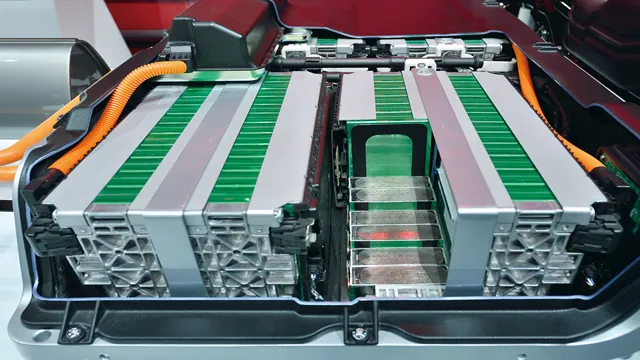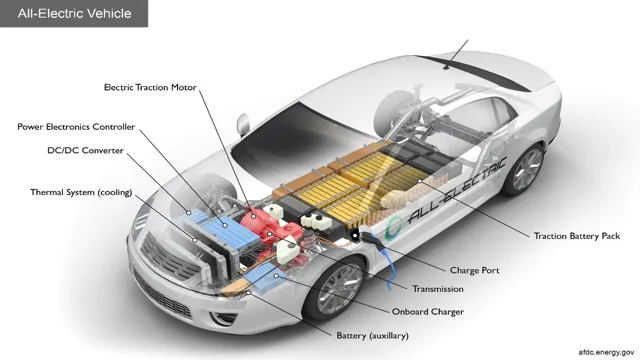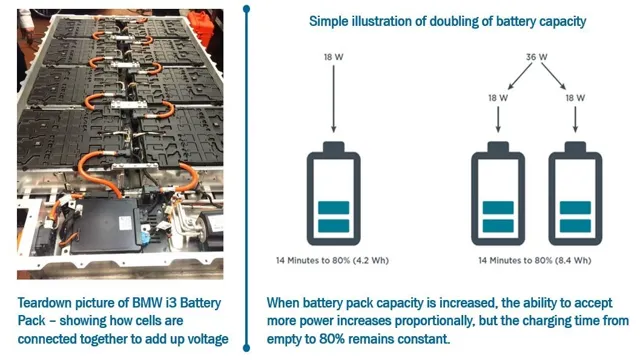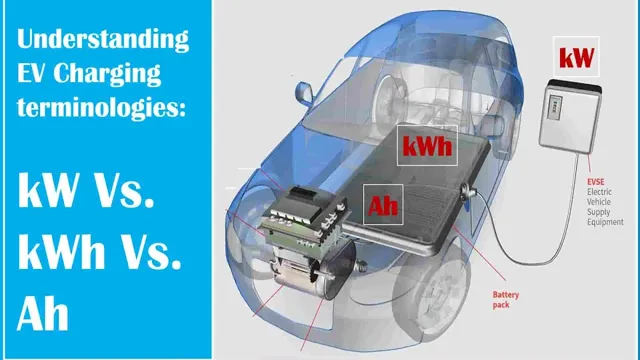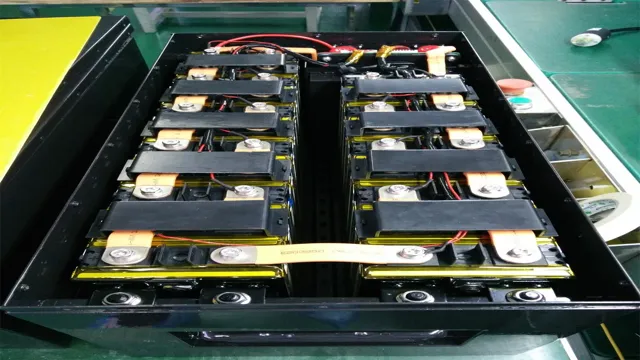Revolutionizing Automotive Industry: Exploring the Exciting World of Electric Car Battery Engineering Roles
Are you curious about what the future holds for electric car battery engineering roles? As the world continues to shift towards sustainable energy sources, the demand for electric cars is on the rise. And with that, the need for skilled engineers who can innovate and improve electric car batteries is becoming increasingly important. In fact, electric car batteries are the heart and soul of electric vehicles.
Improved battery technology is the key to longer ranges, shorter charging times, and reduced cost. As the world progresses, the future of electric car battery engineering roles looks bright. In this blog post, we will explore some of the exciting developments that are on the horizon, as well as the opportunities for those looking to pursue a career in this field.
So, buckle up and join us on a journey to the future of electric car battery engineering roles!
Growing Demand for Electric Cars
As the demand for electric cars continues to rise, so does the need for skilled professionals in the field of electric car battery engineering. These roles require expertise in not just chemical engineering, but also electrical engineering and software programming. Battery engineers are responsible for designing and testing battery systems that are safe, efficient, and reliable.
They must consider factors such as battery life, energy density, and charging time, while also adhering to strict safety regulations. With the growing popularity of electric cars, there is a need for more specialized engineers to bring innovation and improvements to battery technology. If you have a passion for sustainability and engineering, a career in electric car battery engineering could be a fulfilling and rewarding path to pursue.
Statistics on the Rise of Electric Cars and Battery Engineering Jobs
Electric Cars It’s not just Tesla leading the charge on electric cars; automakers worldwide have been stepping up their game and investing in the future of driving. In fact, electric car sales increased by 43% in 2020, despite the pandemic’s impact on the auto industry. This growth is expected to continue, with forecasts projecting that electric cars will make up 58% of global passenger car sales by 2040.
As the popularity of electric cars rises, so too does the demand for battery engineering jobs. These jobs involve developing and producing batteries for electric vehicles, as well as improving existing battery technology. With the growth of the electric car industry, battery engineering jobs are becoming increasingly important, and are a promising career path for those interested in sustainable transportation.
So, not only is the rise of electric cars good news for the environment, but it also presents a significant opportunity for individuals looking to make a career in this expanding field.
The Impact of Government Policies on Electric Car Sales and Jobs
The demand for electric cars is on the rise, and government policies are playing a significant role in driving this trend. With increasing concerns about climate change and the need to reduce carbon emissions, governments around the world are incentivizing the production and purchase of electric vehicles. For instance, in some countries, there are tax credits and rebates for buying electric vehicles, while in others, there are stricter emissions standards that require automakers to produce more electric cars.
These policies have made electric vehicles more affordable and improved their overall accessibility. Furthermore, the shift towards electric cars has created new job opportunities in the automobile industry, particularly in the production of electric car components such as batteries and charging stations. These policies have not only helped reduce carbon emissions but have also created a sustainable future for both the environment and the economy.
Types of Electric Car Battery Engineering Roles
If you’re interested in the world of electric cars and their batteries, you’ll be happy to learn that there are a variety of electric car battery engineering roles available. These roles require different skills and expertise levels, but all play a valuable role in creating and maintaining electric car batteries. Some roles include battery design engineers, who are responsible for creating the initial designs for electric car batteries.
Other roles include battery testing engineers, who test the batteries once they’re built to ensure they meet certain safety and efficiency standards. Additionally, there are battery management system engineers, who develop and maintain the software that controls the battery’s performance and safety features. Whatever your passion or skillset may be, there’s likely an electric car battery engineering role that would be a perfect fit for you.
Battery Engineer
As a battery engineer in the electric car industry, there are various types of roles one can have. The two main categories are cell engineering and pack engineering. Cell engineers focus on the development and testing of individual battery cells, while pack engineers deal with the assembly and integration of multiple cells into an electric car battery pack.
Within each category, there are further specializations such as material science, thermal management, electrical design, and safety testing. Material scientists work on developing new materials for battery cell components while thermal management engineers ensure that the battery can operate within a safe temperature range. Electrical design engineers focus on the electrical connections and wiring within the battery pack, and safety testing engineers ensure that the battery meets safety regulations and can withstand accidents.
With increasing demand for sustainable transportation, the role of a battery engineer is critical for the advancement of electric car technology.
Battery Test Engineer
As electric cars become more widespread, the demand for battery engineers is on the rise. Among the various types of electric car battery engineering roles, the Battery Test Engineer plays a critical role. Battery Test Engineers are responsible for testing the battery systems of electric cars to ensure they meet performance and safety standards.
They perform a wide range of tests, including environmental testing, durability testing, and performance testing. This involves collecting data on factors such as temperature, humidity, and battery charge, as well as performing stress tests to simulate various driving conditions. The data they collect is then used to improve battery design and ensure that electric cars can handle a range of driving scenarios.
Battery Test Engineers typically hold a degree in electrical engineering or a related field and have experience working with batteries. They also use specialized equipment, software, and tools to perform their tests accurately. Overall, Battery Test Engineers play a critical role in ensuring the safety and performance of electric cars, making them a valuable asset in the ever-growing electric car industry.
Battery Systems Engineer
As a battery systems engineer in the field of electric car engineering, there are a variety of different roles you can take on. One such role would be working on the design and development of new battery systems for electric vehicles. This may involve researching and testing new battery chemistries, developing new battery management systems, and working with other engineers to integrate the new batteries into the overall vehicle design.
Another important role is in the area of battery safety. Engineers in this role are responsible for ensuring that the batteries used in electric cars are safe for both drivers and passengers. This may involve developing new safety protocols and testing procedures, as well as working with other engineers to ensure that the batteries are installed and maintained correctly.
Finally, some battery systems engineers may specialize in battery diagnostics and repair. These engineers are responsible for diagnosing and repairing any problems that arise with the battery system, ensuring that the vehicle is operating at peak efficiency. Overall, the field of electric car battery engineering is dynamic, challenging, and constantly evolving, making it an exciting field for anyone interested in renewable energy and automotive engineering.
Key Skills and Education Requirements for Electric Car Battery Engineering Roles
For those interested in pursuing a career in electric car battery engineering roles, there are several key skills and educational requirements to consider. These roles typically require a strong foundation in electrical engineering, particularly in areas related to battery technology and energy storage. A deep understanding of current battery chemistries, as well as the ability to predict and design new ones, is critical for success in this field.
Additionally, expertise in computer-aided design (CAD), finite element analysis (FEA), and other modeling and simulation tools is highly valued. Collaborative and innovative problem-solving skills are also important, as electric car battery engineers work closely with other teams to develop and deploy robust, reliable, and efficient energy storage systems. Finally, candidates should have at least a bachelor’s degree in electrical engineering or a related field, and many employers prefer advanced degrees for more complex or senior-level roles.
With the right educational background and skillset, electric car battery engineering roles offer exciting opportunities to contribute to the growing market for sustainable transportation and energy storage solutions.
Expertise in Battery Chemistry and Material Science
As electric vehicles continue to gain popularity, the demand for battery engineers is on the rise. These professionals must have expertise in battery chemistry and material science to develop and improve electric car batteries. Key skills for electric car battery engineering roles include a strong background in materials science, experience with battery testing, and knowledge of electrochemical reactions and battery modeling.
Additionally, a bachelor’s or master’s degree in materials science, chemistry, or a related field is typically required. Battery engineers must also be able to work efficiently in a team environment, troubleshoot problems effectively, and communicate their findings clearly. With the right education and skills, battery engineers play a vital role in developing batteries that are increasingly efficient, reliable, and cost-effective, helping to drive the continued growth of the electric vehicle industry.
Programming Skills for Battery Analytics and Modeling
As electric cars become more popular, the demand for electric car battery engineers is on the rise. To excel in this field, it’s important to have programming skills for battery analytics and modeling. This means being proficient in programming languages like Python and MATLAB to analyze battery data and develop models that predict battery performance and longevity.
Additionally, proficiency in data visualization tools like Tableau is crucial to effectively communicate findings. To enter this field, a bachelor’s degree in electrical engineering, mechanical engineering, or a related field is typically required. A master’s degree in battery technology or energy systems can also be an advantage.
Some employers may also require certification in battery-specific software or technology. In addition to technical skills, strong communication skills and the ability to work in a team are crucial in this field, as battery engineers work with professionals from diverse backgrounds such as chemistry, materials science, and mechanical engineering. Adaptability is also important, as the field is constantly evolving with new technology and research.
Overall, a combination of technical programming skills, a strong educational background, and soft skills like communication and adaptability are key for success in electric car battery engineering roles.
Education and Certifications for Electric Car Battery Engineering Jobs
In order to pursue a career in electric car battery engineering, there are a few essential skills and educational requirements you must possess. Firstly, you should have a strong foundation in electrical engineering, including experience with circuit analysis, digital electronics, and power electronics. Additionally, you should have a good understanding of electrochemistry and materials science, as much of the work in this field involves designing, testing and optimizing the chemical and physical properties of battery components.
Advanced degrees in these fields, such as a Master’s or PhD, can be particularly advantageous for top roles in research and development. Furthermore, organizations such as the Institute of Electrical and Electronics Engineers offer certifications in electric vehicle engineering, which can demonstrate your expertise and commitment to the industry to potential employers. Finally, it is essential to have a passion for renewable energy and sustainability, as electric car battery engineering is fundamental to creating a cleaner, carbon-free future.
By possessing these skills and qualifications, you can be well-positioned to pursue a rewarding career in this exciting and ever-growing field.
Conclusion
In the world of electric car battery engineering, roles and responsibilities are just as diverse as the cars themselves. From designing and testing innovative battery materials, to optimizing charging and discharging processes, there is no shortage of fascinating challenges to be tackled. Whether you’re passionate about sustainability, performance, or just enjoy being at the forefront of cutting-edge technology, there’s a role for you in this exciting field.
So buckle up, embrace the charge, and let’s all drive towards a brighter, cleaner future together!”
FAQs
What are the different roles in electric car battery engineering?
There are several roles in electric car battery engineering including battery design engineer, testing and validation engineer, manufacturing engineer, and battery systems engineer.
What skills are required for a career in electric car battery engineering?
A career in electric car battery engineering requires a strong understanding of electrochemistry, battery management systems, manufacturing processes, programming skills, and design skills.
Why is electric car battery engineering important?
Electric car battery engineering is important because it plays a critical role in the development of sustainable transportation. Efficient and reliable battery technology is necessary to power electric cars and reduce our dependence on fossil fuels.
What are some new advancements in electric car battery engineering?
Some new advancements in electric car battery engineering include solid-state batteries, high-capacity lithium-ion batteries, and battery recycling technologies. These advancements aim to increase the energy density, reduce costs, and improve the sustainability of electric car batteries.

